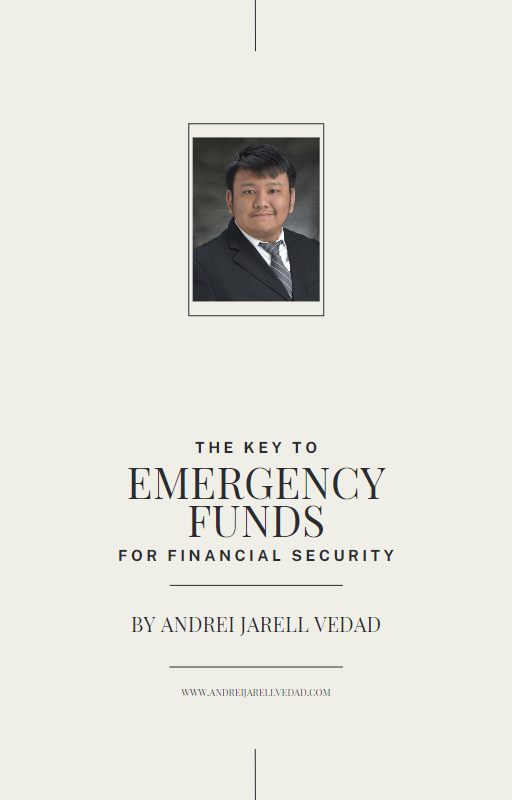
Table of Contents
Saving money is crucial, whether you have a tight budget or not. However, saving money on a tight budget can be a challenge. It can be stressful to make ends meet when you’re living paycheck to paycheck, but it’s essential to establish a savings habit.
The importance of saving money cannot be overstated. Saving money provides a safety net for emergencies and unexpected expenses. It also helps you achieve financial freedom, whether that means paying off debt, buying a home, or retiring comfortably.
Saving money on a tight budget can seem daunting, but it’s possible with the right mindset and strategy. The challenges you may face could include lack of income, high expenses, and unexpected bills. But by following the tips in this article, you can overcome these challenges and start saving today.
The purpose of this article is to provide you with practical tips and advice on how to save money on a tight budget. We will cover everything from evaluating your current spending habits to finding creative ways to save money, and utilizing technology to your advantage. By the end of this article, you will have a clear plan on how to save money and achieve your financial goals, no matter how tight your budget may be. So, let’s get started!
Evaluate your current spending habits
When it comes to saving money, the first step is to evaluate your current spending habits. You need to have a clear understanding of where your money is going, to identify areas where you can cut back and save.
Analyze your expenses
Start by analyzing your expenses over the last month or two. This will help you get a clear picture of where your money is going. Look at your bank statements, credit card statements, and receipts to track your spending.
Categorize your expenses into necessary and unnecessary expenses. Necessary expenses are those that are essential for your survival and well-being, such as rent/mortgage, utilities, groceries, and healthcare. Unnecessary expenses are those that are not essential, such as entertainment, dining out, and shopping.
Identify areas where you can cut back
Once you have a clear understanding of your expenses, identify areas where you can cut back. Look at your unnecessary expenses and see where you can make adjustments. Can you cut back on dining out or entertainment? Can you find ways to save on your utility bills?
Consider switching to a cheaper phone plan or canceling subscriptions that you don’t use. Every little bit counts, and cutting back on unnecessary expenses can free up money to put towards your savings goals.
Develop a budget plan
Developing a budget plan is essential to saving money on a tight budget. A budget is a plan that outlines your income and expenses and helps you stay on track with your financial goals.
Start by listing your income sources, including your salary, any side hustle income, or any government benefits. Next, list your expenses, including necessary expenses such as rent, utilities, groceries, and transportation, and then list your discretionary expenses, such as dining out, entertainment, and shopping.
Subtract your expenses from your income to see how much money you have left over each month. This will give you an idea of how much you can put towards your savings goals.
If you find that your expenses are higher than your income, look for ways to cut back. Can you negotiate a lower rent or a better deal on your utility bills? Can you find ways to save on groceries or transportation costs?
By evaluating your spending habits, identifying areas where you can cut back, and developing a budget plan, you’ll be on your way to saving money on a tight budget. Remember, every little bit counts, and even small adjustments can make a big difference over time.
Set realistic goals
Setting goals is an essential part of any successful money-saving plan. Without goals, it’s easy to lose track of your progress and become demotivated. But, how do you set goals that are both realistic and achievable? Let’s dive in.
Short-term and long-term goals
Firstly, it’s important to distinguish between short-term and long-term goals. Short-term goals are ones that can be achieved within a few weeks or months, while long-term goals may take years to accomplish. Some examples of short-term goals include paying off a credit card balance, saving up for a vacation, or reducing your monthly expenses. Long-term goals might include saving for a down payment on a home, building an emergency fund, or saving for retirement.
How to prioritize your goals
Once you’ve identified your goals, the next step is to prioritize them. Ask yourself which goals are the most important to you? Which ones will have the most significant impact on your finances? Prioritizing your goals will help you stay focused and avoid feeling overwhelmed.
Create a plan to achieve your goals
After you’ve set your goals and prioritized them, it’s time to create a plan to achieve them. Start by breaking down your goals into smaller, more manageable tasks. For example, if your goal is to pay off a credit card balance, create a plan to pay off a certain amount each month. If your goal is to save for a down payment on a home, create a plan to save a specific amount each month.
Remember, the key to achieving your goals is to make them specific, measurable, and achievable. Don’t set goals that are too lofty or unrealistic, as this can lead to frustration and disappointment. Instead, set goals that are challenging but still achievable with hard work and dedication.
Look for ways to increase your income
When you’re on a tight budget, finding ways to increase your income can be a game-changer. By bringing in extra money, you’ll have more room to save and pay off debts. Here are some tips to help you boost your income:
Identify opportunities to earn extra money
Whether it’s through a part-time job, freelancing, or starting your own business, there are countless ways to bring in additional income. Think about your skills and interests and consider how you can leverage them to make more money. You might be surprised at the opportunities available to you.
Consider a side hustle or part-time job
If you have spare time, consider taking on a side hustle or part-time job. This can be anything from driving for a rideshare service to working in retail. The extra income can be used to pay off debts or increase your savings.
Negotiate a raise or promotion
If you’re currently employed, consider negotiating a raise or promotion. Do some research on the average salary for your position, and bring up your accomplishments and contributions to the company when making your case. A small increase in your salary can make a big difference in your overall financial situation.
Remember, increasing your income is just one part of the equation. It’s important to use the extra money wisely by saving and investing it in ways that will help you achieve your financial goals.
Find creative ways to save money
As you continue your journey towards saving money on a tight budget, finding creative ways to cut costs becomes increasingly important. In this section, we’ll explore some simple yet effective strategies to help you save more money.
Shop Smart
One of the easiest ways to save money is by being a smart shopper. This means doing your research before making a purchase. Look for deals and discounts, compare prices, and don’t be afraid to negotiate with sellers. Also, consider shopping at discount retailers, buying in bulk, or using loyalty programs to save money on everyday purchases.
Use Coupons and Discount Codes
Coupons and discount codes can help you save a significant amount of money on everything from groceries to clothing. You can find them online or in print ads, and many stores offer digital coupons that you can easily clip and use at checkout. Taking advantage of these offers can help you stretch your budget even further.
Buy Used or Refurbished Items
Another great way to save money is by purchasing used or refurbished items. Look for second-hand stores, garage sales, or online marketplaces like Facebook Marketplace, eBay or Craigslist for good deals. You can also find refurbished electronics or appliances that are nearly as good as new but come at a fraction of the cost. Remember, sometimes the best deals are the ones that require a little extra effort.
By incorporating these simple tips into your budgeting plan, you’ll be well on your way to achieving your financial goals. Remember, every penny counts, so don’t be afraid to get creative and find new ways to save money.
Use technology to your advantage
In today’s digital age, technology offers a plethora of ways to help you save money. By using the right tools and apps, you can easily track your spending, set savings goals, and even automate your finances.
One of the most effective ways to save money is to track your expenses. By keeping tabs on your spending, you can identify areas where you might be overspending and make necessary adjustments. There are many online tools and apps available that make it easy to track your expenses, categorize your spending, and monitor your budget.
Additionally, you can utilize apps that help you save money by offering discounts, cashback, or coupons. Many retailers and grocery stores have their own apps that offer exclusive deals and promotions. You can also use price comparison apps to find the best deals on everything from groceries to clothing to travel.
Another way to use technology to your advantage is to consider online banking and automatic transfers. Many banks now offer online banking services that allow you to manage your accounts from your computer or mobile device. You can easily set up automatic transfers from your checking account to a savings account, making it effortless to save money every month.
Finally, consider using budgeting apps that help you manage your finances and reach your savings goals. These apps can help you track your spending, create a budget, and even provide personalized recommendations for how you can save money based on your spending habits.
Overall, technology can be an incredible tool for helping you save money. By using these tools and apps, you can stay on top of your finances, find great deals, and achieve your savings goals. So don’t be afraid to explore the many options available to you and start saving money today!
Stay motivated and accountable
Saving money can be challenging, but it’s important to stay motivated and accountable to achieve your goals. One of the best ways to stay motivated is to celebrate small victories along the way. Did you manage to stick to your budget for a week? Treat yourself to a small reward! It’s important to acknowledge your progress and pat yourself on the back for your efforts.
Keeping track of your progress is also crucial for staying motivated. Whether it’s tracking your spending habits, monitoring your savings account, or checking off your goals, it’s important to have a way to measure your progress. This way, you can see how far you’ve come and how much closer you are to achieving your financial goals.
Finally, finding a support system can be incredibly helpful when it comes to saving money. Share your goals with a friend or family member who can encourage you along the way. You can also join online communities or forums where people share tips and support each other in their financial journeys. Having someone to talk to and share your successes and struggles with can make all the difference in staying motivated and accountable.
Remember, saving money on a tight budget is a journey, not a destination. Stay committed to your goals, celebrate your victories, and don’t be too hard on yourself when you have setbacks. With the right mindset and support, you can successfully save money and achieve financial stability.
Conclusion
Congratulations, you’ve made it to the end of this guide on how to save money on a tight budget! Let’s recap the key points:
- Saving money is important for financial stability and peace of mind.
- Saving money on a tight budget can be challenging, but it is possible with careful planning and dedication.
- To save money, you need to evaluate your current spending habits, set realistic goals, look for ways to increase your income, find creative ways to save, use technology to your advantage, and stay motivated and accountable.
As a final tip, remember that saving money is not a one-time thing. It’s a habit that you need to develop and maintain over time. So, start small and celebrate your successes along the way. Keep track of your progress and find a support system to help you stay motivated.
In conclusion, I encourage you to start saving today. Whether it’s cutting back on unnecessary expenses, finding ways to increase your income, or using technology to your advantage, every little bit helps. With dedication and perseverance, you can achieve your financial goals and live a happier, more fulfilling life. Good luck!
Relevant Blog Posts
Here are some relevant blog posts that you can read after this one:
- The Key To Emergency Funds For Financial Security
- Ways To Secure Your Finances Right Now
- Building An Emergency Fund On A Low Income
- How To Stay Motivated To Achieve Your Financial Goals
- Budgeting For College Students in the Philippines
- How To Save Money On A Tight Budget
- 10 Lucrative Side Hustles You Can Start from Home Today
- 10 Profitable Small Business Ideas for Filipinos in 2023
- Passive Income Ideas For Filipinos
- Frugal Living Tips For Filipinos
- Smart Habits That Helps You Save Money
- Get Debt-Free: Expert Tips and Tricks to Pay Off Your Debts
- Money Management Made Easy: Why You Need Separate Budget Accounts
- Budgeting 101: How to Create a Personal Budget that Works for You
I hope these blog posts are useful and informative to you.
For Your Reference
Budgeting
For your reference, you can read these blog articles relevant to budgeting:
- What Is Financial Literacy?
- Budgeting When You’re Broke
- The Beauty of Budgeting
- 5 Rules to Improve Your Financial Health
- Calculate Your Debt-to-Income Ratio
- 8 Financial Tips for Young Adults
- 5 Signs That You’re Living Beyond Your Means
- 4 Easy Budgeting Techniques
- 3 Common Budgeting Challenges to Overcome
- Zero-Based Budgeting: Benefits and Drawbacks
- Best Budgeting Apps
- What Is a Budget? Plus 10 Budgeting Myths Holding You Back
- Basic Budgeting Tips Everyone Should Know
- Budgeting Basics To Help You Manage Your Money
- Understanding Budgeting & Personal Finance
- 5 Simple Budgeting Guidelines to Follow
- The 50/30/20 Rule of Thumb for Budgeting
- Strategies for Budgeting and Saving Money
- Different Budgeting Techniques to Try
- Understanding Budgeting & Personal Finance
- Budgeting for Kids: How To Teach It and Why It Matters
- Budgeting for Teens: What You Need to Know
- 10 Budgeting Pitfalls and How to Avoid Them
Debt
For your reference, you can read these blog articles relevant to debt:
- What Is Debt?
- Student Loan Debt vs. Credit Card Debt
- Good Debt vs. Bad Debt: What’s the Difference?
- A Step-by-Step Guide To Getting Out of Debt
- Choose the Debt Payoff Strategy That’s Right for You
- A Guide to Debt Settlement
- 12 Tips for Sticking to Your Debt Payoff Plan
- 6 Steps to Get Out of Debt
- How to Pay Off Credit Card Debt
- What Is the Debt Avalanche Strategy?
- What Is Debt Consolidation?
- What Is a Debt Repayment Plan?
- How to Create a Debt Elimination Plan
- Debt Avalanche vs. Debt Snowball: What’s the Difference?
- Debt Settlement: Cheapest Way to Get Out of Debt?
Emergency Funds
- Why an Emergency Fund Is More Important Than Ever
- How to Build an Emergency Fund
- The best protection against bad trouble is good planning
- How Much Cash Should I Keep in the Bank?
- Emergency Funds
- 8 Reasons You Need an Emergency Fund
- What Amount Do Retirees Need in an Emergency Fund?
- How To Use Your Emergency Fund and Make It Last
- Rule of Thumb: How Big Should Your Emergency Fund Be?
- When to Use Your Emergency Fund
- Rainy Day Fund vs. Emergency Fund – Do You Need Both?
- It’s Time to Build a Better Emergency Fund
- How to Prepare Your Emergency Fund
- Emergency Cash Reserves
- 7 Tips for Building an Emergency Fund
Disclaimer
I am not a financial advisor. Please note that the information provided on this website is for general informational purposes only and should not be considered as financial advice.
While I strive to ensure the accuracy and timeliness of the information presented, financial situations can vary, and the content may not be applicable to everyone. Therefore, it is essential to consult with a qualified financial professional or advisor before making any financial decisions.
It is important to understand that investing and financial planning involve risks, and there are no guarantees of specific outcomes or returns.
By accessing this website or engaging in consultations, you acknowledge and agree that any actions taken based on the information provided are at your own risk, and I shall not be held liable for any direct or indirect consequences arising from such actions.
Get My E-books For Free!


Take control of your financial future and download my e-books: “Ways to Secure Your Finances Right Now” and “The Key To Emergency Funds For Financial Security” today! This comprehensive guides are packed with practical strategies and expert advice to help you achieve financial security and improve your financial literacy.
By subscribing to my Substack Newsletter, you’ll gain access to exclusive content, regular updates, and valuable insights on personal finance. You’ll stay informed about the latest financial trends, investment opportunities, and money-saving tips.
Don’t miss out on this opportunity to equip yourself with the knowledge and tools needed to secure your financial future. Join our community of motivated individuals who are committed to achieving financial freedom and success.
Subscribe to my Substack Newsletter today and get instant access to the e-book “Ways to Secure Your Finances Right Now.” Take the first step towards a brighter financial future. Your journey to financial security starts now!
Affiliate Links Disclaimer
My blog posts contain referral/affiliate links, so I can potentially earn via commission. It would help me a lot when you use my referral/affiliate links

Andrei Jarell Vedad is a passionate financial literacy advocate from the Philippines. With a background in Information Technology and currently pursuing a law degree, Andrei combines his knowledge and expertise to empower individuals in managing their personal finances. Through his blog and extensive research, he shares practical tips, strategies, and thought-provoking articles to help readers make informed financial decisions and achieve their financial goals. With a global perspective, Andrei aims to inspire positive change and foster financial well-being, not only in the Philippines but also worldwide.


